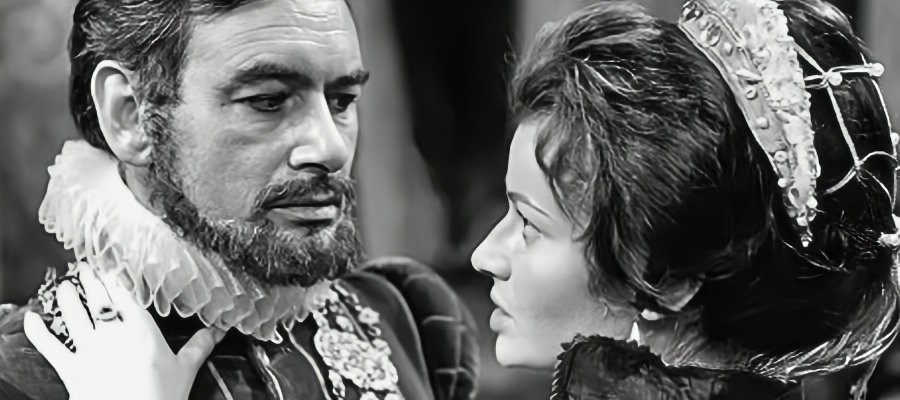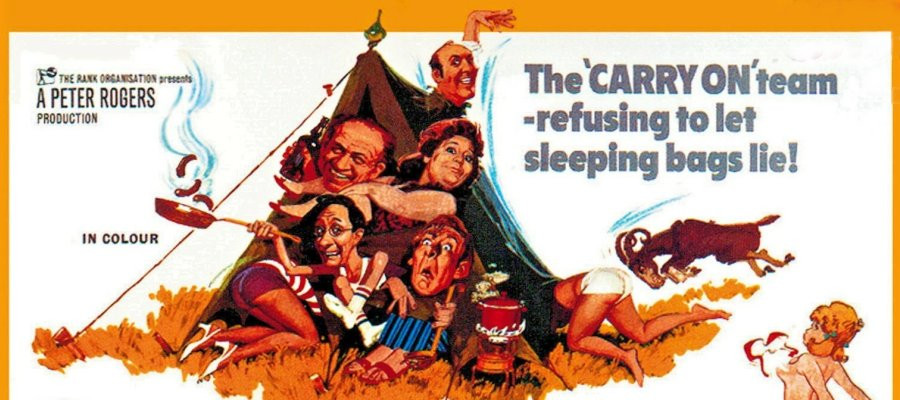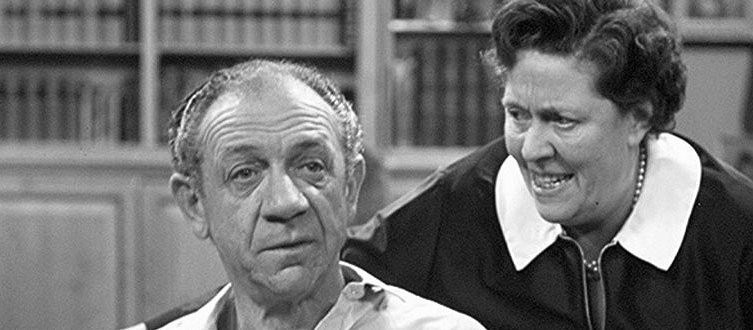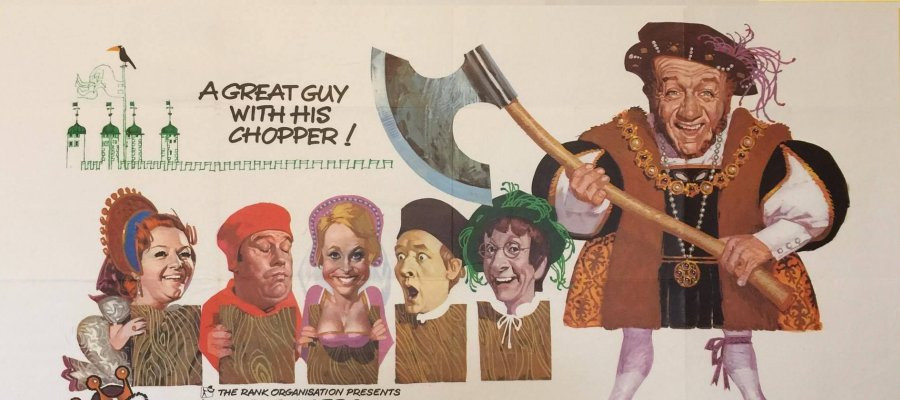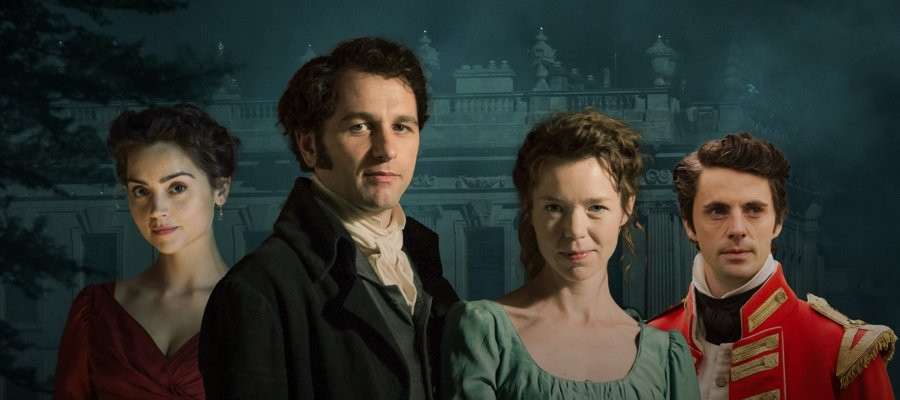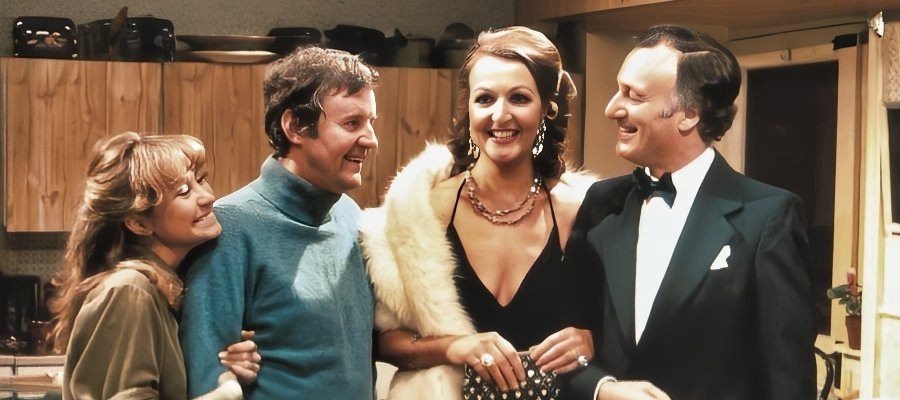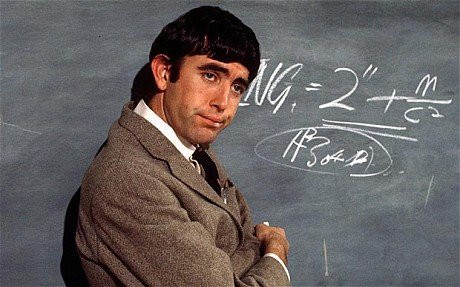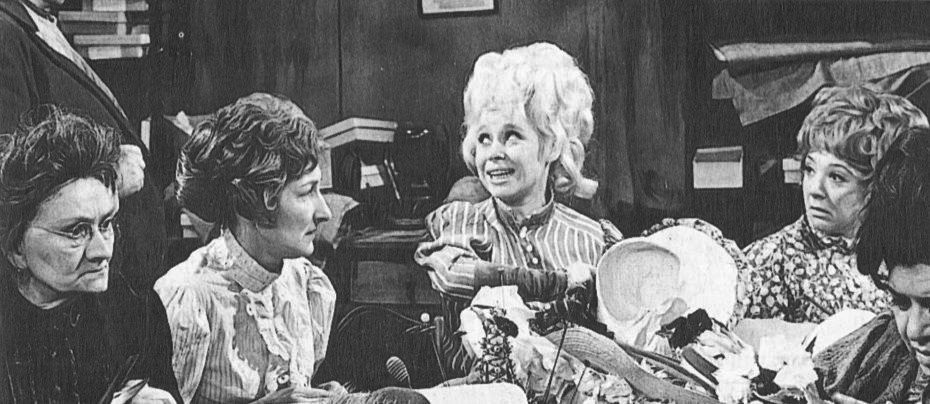
Wild, Wild Women
1968 - United KingdomAll but the first episode of the 1969 series of Wild, Wild Women appear to be missing from the archives
It's the turn of the century and a few days before the coronation of King Edward VII. The proprietor of a millinery shop is bidding for clients among the nobility. But in the basement sweatshop where the hats are made, his female workforce is less concerned with the latest demands in fashion and far more interested in the battle for women's rights.
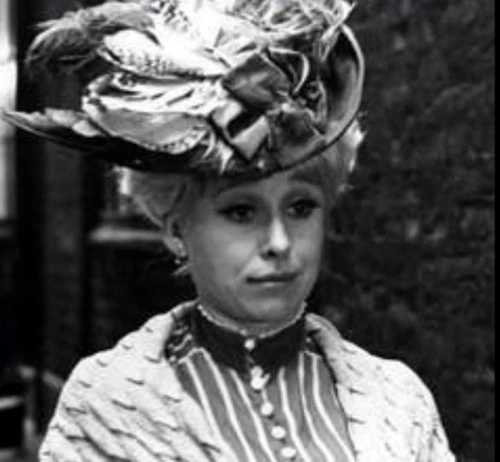
Wild, Wild Women was another in the long line of the hugely successful and influential Comedy Playhouse presentations. Derek Francis played the proprietor, Mr Harcourt, Barbara Windsor a cheeky Cockney girl, Millie, and Ronnie Stevens a meek and mild overseer, Clarence.
If the format seems familiar that's because it was pretty much the same template as The Rag Trade, the 1961 sitcom set in an East End sweatshop that made a wide variety of women's apparel. But that was OK, because although the name and setting was changed, the writers were the same.
The two Ronald's, Chesney and Wolfe had crafted their trade in comedy scripts writing on radio's Educating Archie before taking their idea of a female dominated series to Associated-Rediffusion, who turned it down because the thought factory workers would not watch it. The BBC picked up The Rag Trade and the writers never looked back. Chesney and Wolfe repeated their success with the Thora Hird, Freddie Frinton BBC sitcom Meet the Wife in 1964, which was originally a one-off Comedy Playhouse pilot, too.
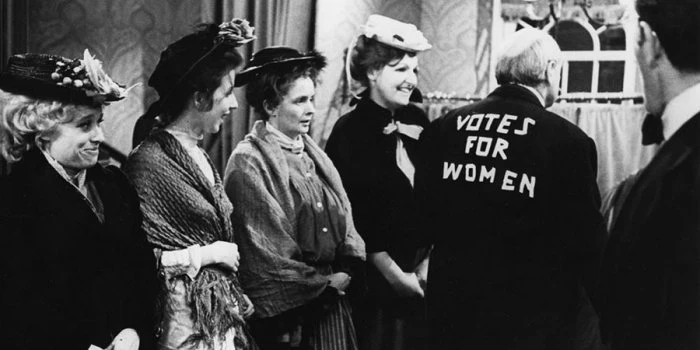
Wild, Wild Women came about because of the writers' desire to create another female led comedy. "It seemed to us that 1902 would be a suitable time for our purpose," Ronald Chesney told the Radio Times in 1969. "It was the eve of the emancipation of women, a kind of saucy revolution and ideal for amusing situations behind the provocation."

The Comedy Playhouse presentation went out on 24 May 1968 and the full series debuted on 6 January 1969. There were a number of cast changes from pilot to series. A young Penelope Keith who appeared as Daisy in the pilot was replaced by the irrepressible Pat Combs and Ronnie Stevens character was dropped entirely to be replaced by Ken Platt as Albert. Derek Francis was replaced by the ever-employed actor Paul Whitsun-Jones.
Barbara Windsor, who had also appeared in The Rag Trade remained in the milliner's employ and she bought with her her close friend Anna Karen (billed here as Anna Karon), making her sitcom debut, but who would soon become one of the most famous television sitcom housewives on British television when she was cast as Olive in On the Buses - also penned by Chesney and Wolfe (and in another example of comedy connections - Reg Varney, who played her brother Stan in the 'Buses' series was also the star of the original ‘Rag Trade’ series). Also in the cast was Joan Sanderson (Please Sir!, Fawlty Towers, Me and My Girl), Jessie Robbins (Magical Mystery Tour), Daphne Heard (Penelope Keith’s vehicle To the Manor Born), and the prolific character actress Toni Palmer.

As you might expect from a sitcom from this era, there was a fair amount of traditional British 'sauce' in the lecherous leanings of Mr Harcourt's manner and, in keeping with the post Victorian era, there was much male indignation at women's aspirations for equality. "Women cabinet ministers?" exclaims Mr Harcourt. "Before that happens there'll be men on the moon!" (In reality, it happened the other way round).
All but the first episode of the 1969 series of Wild, Wild Women appear to be missing from the archives, but a quick search for it will bring up that episode on YouTube. Sadly, only one series of six episodes was made. Whether this was because the series wasn't as well received or whether the success of On the Buses (which started just a month later on LWT) put an end to it is unknown.
Seen this show? How do you rate it?
Seen this show? How do you rate it?
Published on February 24th, 2022. Written by Laurence Marcus for Television Heaven.


